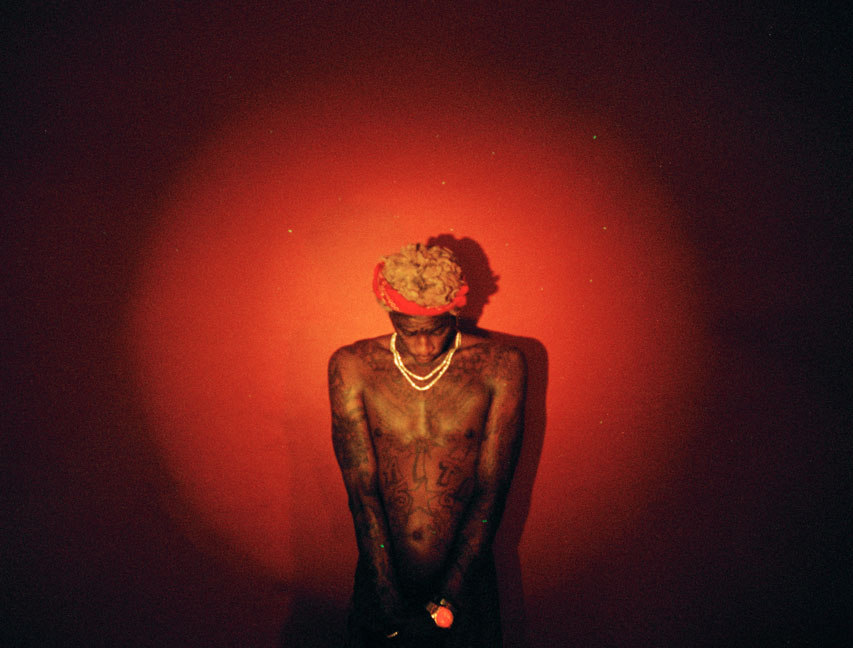POP THESIS: No, It’s Not Just About the Lyrics
 Thirsty for JUICE content? Quench your cravings on our Instagram, TikTok and WhatsApp
Thirsty for JUICE content? Quench your cravings on our Instagram, TikTok and WhatsApp

Text Alfonso Gomez
In ‘What the Fuck Did He Just Say? On Young Thug and the Abstraction of Rap’ (The Pitchfork Review No. 6, Spring 2015), Brian Zarley posited that the new ATL luminary heralded a new age of rap; one that transcends hip hop rigid constrictions and well into the realm of abstraction. While Zarley might be projecting his background in the arts a bit too much here, it’s unlikely that Thugger had a whole art movement in mind when developing his flow, he was objectively right about one argument – the act of rapping doesn’t begin and end at being ‘lyrical’.
The word ‘lyrical’, in the context of hip hop, is a problem in itself. In the genre’s quest for validation – as it is wont to be for genres of the disenfranchised, it is often maligned by the privileged as low-brow, ‘dumb’, or ‘lesser’ – its practitioners have taken extreme pride in proving themselves as above the adjectives that the myopic white men in music had associated them with, to the point of becoming as shortsighted themselves. This oftentimes means taking a supposed intellectual approach when it comes to lyrical content; “Rap is rhythm and poetry, y’all need to be lyrical,” a hypothetical KRS-One acolyte would adamantly say and emphasise, seemingly unaware that while indubitably a legend, Krisna’s lyrics were basic at best. And here’s the rejoinder; there is nothing wrong with that. At its basest, rap is another layer of instrumentation to the beat, a percussive one at that (although now it’s evolved to other forms). This is where it is at its most commanding and influential – you could argue that Tupac or Biggie was well-regarded due to their lyrics (though Pac was an absolutely shite lyricist), but think about how often their respective flows were imitated?
The more important aspect of rap then, is rap itself. So when Snoop Dogg – someone who is mostly known for having an idiosyncratic style that can be unintelligible at times, and being high – scoffed at Migos for having popularised triplets in rap (so much so that ‘Migos Flow’ is a term used to describe it) by claiming that he can’t understand a single word rapped by the group, he had effectively become the old white men in music who did the same to him yonks before. But then again, Snoop is turning 44 this year – he might not be white, but the generational gap is still there. The cool black men that White America feared their kids would be influenced by in the late ‘80s and early ‘90s have become the cultural police that they were once at odds with. That’s both simultaneously progress and inertia.
What does it even mean to be lyrical to begin with? If you grew up keystyling on hip hop message boards throughout the ‘00s, being ‘lyrical’ often means obscure multi-syllabic words and forced multi-syllabic rhymes, wrong, or worse, meaningless supposedly intelligent references (be it science, arts, culture, history, or ‘nerdy’), and general verbosity. This ‘style’ can be traced back to members of the Wu-Tang Clan – just listen to ‘Triumph’, Inspectah Deck’s at the time classic verse now embodies the pejorative “Spiritual, lyrical, miracle,” a phrase used to ridicule the notion of ‘real hip hop’ and supposed lyricism. But no hate on the Shaolin crew, they – at least – had distinct voices. The same can’t be said for unknown underground acts, middling mid-streamers, and has-beens from decades ago who incessantly whinge about the lack of lyricism in modern hip hop.
Truth of the matter is that claiming to be a lyrical rapper – and that young’uns are too ig’nant to support lyrical rappers – is conveniently ignoring something rather matter-of-fact; you have a boring flow, and your beats suck (probably your lyrics too!). It is to handwave one problem and to antagonise the genre’s changing fanbase, which isn’t going to result in your winning more fans.
The pop world and music critics put Kanye West on a pedestal, no doubt to the confusion of the ‘real hip hop’ crowd. But perhaps you need to listen to his music again, and try not to equate big words with quality.
In the mean time, enjoy some Young Thug:
Alfonso Gomez is an advocate of what old people would call ‘trap rappers’.


 Get Audio+
Get Audio+ Hot FM
Hot FM Kool 101
Kool 101 Eight FM
Eight FM Fly FM
Fly FM Molek FM
Molek FM